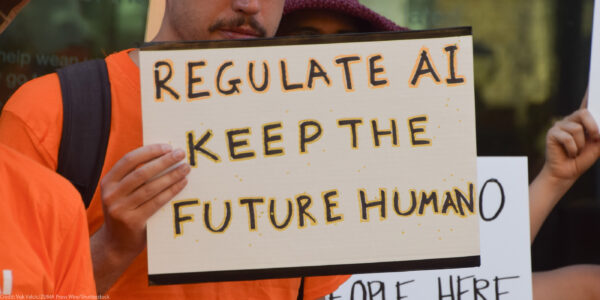Ķųŗģ±¬ĮĻ Demands Social Security Administration Turn Over Docs on DOGEās Access to Americansā Data
The group also released a related report today on the significant risks of DOGE consolidating federal data
WASHINGTON ā The Ķųŗģ±¬ĮĻ today urged the U.S. District Court for the District of Columbia to grant a preliminary injunction and order expedited processing of a Freedom of Information Act (FOIA) request sent to the Social Security Administration (SSA). The FOIA request, originally filed in February, seeks urgent transparency about the so-called Department of Government Efficiencyās (DOGE) secretive efforts to access and analyze Americansā sensitive personal information controlled by the Social Security Administration.
In its FOIA request, the Ķųŗģ±¬ĮĻ asked for any records that reveal whether DOGE or its representatives have sought or obtained access to databases containing personally identifiable information, financial records, health care data, or other sensitive government-held records of Americans. The request also sought information on DOGEās use of artificial intelligence (AI) to analyze government data.
Despite the urgency of the situation, the SSA declined Ķųŗģ±¬ĮĻās request for expedited processing and has so far failed to respond to the Ķųŗģ±¬ĮĻās appeal. Also concerning is the recent news that DOGE has already started removing some protections around personal data, such as Social Security numbers, birth dates, employment history, disability records, and medical documentation.
āTodayās filing marks a critical step in uncovering the full extent of DOGEās access to the U.S. Social Security Administrationās database,ā said Michelle Fraling, Skadden Fellow with the Ķųŗģ±¬ĮĻās Center for Liberty. āRecent reports that DOGE intends to consolidate federal data into a centralized system only heighten the need to obtain this information. The public has a right to know, now, who is accessing their Social Security numbers, financial records, and medical history.ā
This comes amidst DOGEās obsessive race to build a single centralized database with vast troves of personal information about millions of U.S. citizens and residents, a campaign that seriously implicates individualsā privacy rights.
One major concern is that the data consolidated by DOGE could be used against political foes or for targeted decisions about funding or basic government services. There is also concern about the risk of exposing data to hackers and other adversaries. A new report from the Ķųŗģ±¬ĮĻ analyzes the vast array of surveillance, privacy, and cybersecurity risks of data consolidation, and the technical issues and legal implications those efforts pose.
āAs DOGE embarks on unprecedented efforts to consolidate federal data, the American people have a right to understand exactly what it is they are doing,ā said Cody Venzke, senior policy counsel at Ķųŗģ±¬ĮĻ. āFor decades, agencies have been required by federal law to give access to our data only if it was necessary for federal employees to carry out their duties. Failure to meet those requirements increases the risk that our data will be mishandled, misused, or exfiltrated in a data breach.ā




